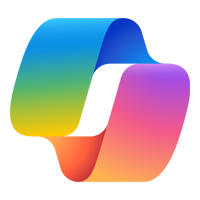Verdict: Regardless of which version of ChatGPT you select, you’ll benefit from a powerful, scalable generative AI model that can consistently produce accurate, human-like content for a variety of use cases. ChatGPT-4 is the more intelligent, more powerful option, but ChatGPT-3.5 is free and still a useful, reliable chatbot. Depending on your budget and specific requirements, either generative AI solution could be a good fit. Read on for a more detailed comparison of the two to better determine which to choose.
KEY TAKEAWAYS
- •ChatGPT-3.5 is best for affordability and accessibility and is ideal for more basic use cases. The free tool is easy for non-developers and less technical users to access and manipulate according to their needs. However, the latest ChatGPT-4o model also offers a free version and is much more advanced than ChatGPT-3.5. (Jump to Section)
- •ChatGPT-4 is best for higher-powered, quicker, scalable projects that require greater accuracy and multimodality. Compared to ChatGPT-3.5, its a better solution for users who want more diverse content outputs and inputs, require more accurate and nuanced outcomes, and need a heavier emphasis on enterprise safety and privacy. (Jump to Section)
- •While ChatGPT-3.5 and ChatGPT-4 are both versatile platforms designed to generate human-like responses, there are other platforms you can consider. (Jump to Section)
ChatGPT-4 vs. ChatGPT-3.5 at a Glance
Both models share foundational traits, but some features set them apart—the chart below shows how they compare at a high level.
| ChatGPT-4 | ChatGPT-3.5 | |
|---|---|---|
| Best For | Scalable projects that require greater accuracy | Straightforward , general-purpose tasks |
| Starting Price | Starts at $20 per month | Free to use |
| Core Features | Multimodal input and output capabilities Advanced reasoning Enhanced speed | Conversational response generation Easy-to-use and straightforward interface |
| Ease of Use | Beginner-friendly | Slightly steeper learning curve |
| Visit ChatGPT-4 | Visit ChatGPT-3.5 |
Featured Partners:AI Software
TABLE OF CONTENTS
What is ChatGPT-4?
ChatGPT-4, also known as ChatGPT 4 and GPT-4, is a large multimodal model capable of understanding and working with both text and images. It was developed by OpenAI, a leading generative AI company that focuses on scalable content generation for wide-ranging personal and business use cases.

ChatGPT-4 capabilities are available in free and paid ChatGPT plans. Users can also fine-tune and set up various OpenAI APIs with the same functionalities. Compared to ChatGPT-3.5 and other earlier iterations of the tool, ChatGPT-4 has greater content accuracy and creative capabilities. It also has a larger context window (32K or 128K, depending on user choice), multimodal capabilities, and several plugins and collaborative features to make the solution more useful for generative AI enterprise use cases.
Key Features of ChatGPT-4
GPT-4 boasts a remarkable set of capabilities powered by artificial intelligence and natural language processing (NLP) to answer any questions, write code, translate texts, and more. Core ChatGPT-4 features include:
- Multimodal Image Generation: GPT-4 allows users to submit visual inputs and generate relevant visual outputs, especially with ChatGPT paid plans that include a DALL-E tool integration for text-to-image content generation.
- Larger Context Windows: Depending on which ChatGPT-4 plan you select, users can benefit from 32K or 128K context windows, as compared to GPT-3.5’s 8K context window.
- Internet Connectivity: Unlike previous OpenAI GPT models and ChatGPT versions, ChatGPT-4 users (Plus plan and higher) can access the internet for limited browsing capabilities, primarily through plugins.
Pros
- Handles complex and nuanced tasks
- Stronger commitment to safety and alignment in training and research
- Multimodal, scalable, and more creative outputs
Cons
- More expensive than many similar models, especially with API and direct model access
- APIs and fine-tuning may have a steep learning curve
What is ChatGPT-3.5?
ChatGPT-3.5 is an earlier generation of ChatGPT that has since been superseded by ChatGPT-4, a more advanced and powerful model. GPT-4o, OpenAI’s newest flagship model that provides GPT-4-level intelligence and free access, also outperforms ChatGPT-3.5. Although newer ChatGPT models surpass ChatGPT-3.5 capabilities, casual users looking for a simple and free platform still access ChatGPT-3.5. With ChatGPT-3.5, users can benefit from mobile and web access, unlimited AI conversational features, an 8K context window, multifactor authentication, and regular updates as OpenAI advances its generative AI technology.

Key Features of ChatGPT-3.5
Newer models have outperformed ChatGPT-3.5, but casual users still prefer this platform due to its free plan, accessibility, and speed designed for simple queries. Core ChatGPT-3.5 includes:
- Unlimited User Interactions: Though the quality, resolution, and other advanced features may be limited, all ChatGPT-3.5 users can send unlimited messages and receive unlimited interactions; they can also keep track of unlimited conversation history.
- Mobile and Web Access: Users can access ChatGPT-3.5 directly from the OpenAI website or through dedicated iOS and Android applications.
- Mobile Voice Capabilities: With the mobile app version of ChatGPT-3.5, users can take advantage of built-in smartphone microphones and AI voices to have true conversations that requires no typing or reading.
Pros
- Free to use
- Easy access across online and mobile app versions
Cons
- Less power and accuracy than the latest model
- No multimodal capabilities
Best for Pricing: ChatGPT-3.5
ChatGPT-3.5 has an advantage over ChatGPT-4 when it comes to pricing. ChatGPT-3.5 is free to access, while ChatGPT-4 is only available in paid plans and APIs.
GPT-3.5 offers a free plan for individual users, including unlimited access to unlimited messages, chat history, interactions, and availability on mobile and web platforms at no cost. While the free plan has several limitations compared to plans running on GPT-4, users can still benefit from fairly quick response times, an 8K context window, multifactor authentication, regular model quality and speed improvements, and the ability to opt out of personal content being used as part of model training sets.
Outside of the GPT-3.5 access that is available directly through ChatGPT, users can also pay for the turbo, fine-tuning, and older 3.5 models:
- gpt-3.5-turbo-0125: $0.50 per one million input tokens; $1.50 per one million output tokens
- gpt-3.5-turbo-instruct: $1.50 per one million input tokens; $2 per one million output tokens
- gpt-3.5-turbo (fine-tuning model): $8 per one million training tokens; $3 per one million output tokens
- gpt-3.5-turbo-1106: $1 per one million input tokens; $2 per one million output tokens
- gpt-3.5-turbo-0613: $1.50 per one million input tokens; $2 per one million output tokens
- gpt-3.5-turbo-16k-0613: $3 per one million input tokens; $4 per one million output tokens
- gpt-3.5-turbo-0301: $1.50 per one million tokens; $2 per one million output tokens
ChatGPT currently offers a free version that provides access to ChatGPT-4o mini and limited use of ChatGPT-4o. While these new models are built on ChatGPT-4’s architecture, free users have limited access to file uploads, advanced data analysis, web browsing, and image generation. Users, teams, and enterprises can upgrade to paid plans to unlock the full capabilities of ChatGPT-4:
- Plus: $20 per month
- Pro: $200 per month
- Team: $25 per user, per month, billed annually; $30 per user, per month
- Enterprise: Contact sales for quote
Best for Core Features: ChatGPT-4
ChatGPT-4 is a more advanced tool than ChatGPT-3.5, offering a wider range of features as well as greater accuracy, creativity, nuanced understanding, and safety training.
GPT-3.5 and GPT-4 both use a transformer-based architecture as part of a neural network that handles sequential data. ChatGPT-3.5 is less advanced, has a smaller number of potential parameters included, and only has access to information up to September 2021. Meanwhile, ChatGPT-4’s knowledge cutoff date was until April 2023.
It’s also important to know that ChatGPT plans powered by GPT-4 can access the internet for browsing tasks, handle advanced data analysis, and operate a significantly larger context window. With these features and more, GPT-4 and paid ChatGPT plans are better at handling complex problems and multimodal challenges compared to GPT-3.5.
GPT-3.5 is still a robust model that powers a free version of ChatGPT. This free, more limited version of ChatGPT is quite capable of various user-requested tasks, including language translation, simple coding and troubleshooting, creative problem-solving and storytelling, and straightforward Q&As.
But GPT-4 is “smarter,” can understand and generate AI images, and can process between four and 16 times as many words as its predecessor with greater accuracy. As a newer model with more R&D to back it up, OpenAI is also committed to stronger safety, privacy, and ethical AI measures in its ChatGPT-4 model. In nearly all ways, ChatGPT-4 offers more and higher-quality core features than ChatGPT-3.5.
Best for Ease of Implementation: ChatGPT-3.5
ChatGPT-3.5 barely edges out ChatGPT-4 for ease of use and implementation, due to the fact that it is free and requires no payment plans or installations to get started.
With ChatGPT-3.5, all users need to do is log in or create a free OpenAI account. Users have the option to log in with their email address and their preferred password, or they can log in through existing Google, Microsoft, or Apple accounts.
Once an account is created and opened, users can immediately begin having conversations with ChatGPT and save their conversation history for later access. The login/signup process is similar for the mobile app, which can easily be downloaded from your mobile device’s app store, just as you would with any other mobile app.
Making an account for ChatGPT-4 is also fairly simple, but it comes with the added layer of setting up subscriptions and payment plans. While this shouldn’t be all that difficult, especially for business users who manage other cloud and app subscriptions, it does add a layer of complexity, especially for accounts with multiple users and/or user counts that are frequently changing.
In summary, both of these generative AI apps are fairly easy to implement and use, but ChatGPT-3.5 is slightly easier. Remember, this comparison focuses primarily on the ChatGPT interfaces for each of these tools rather than APIs and fine-tuning model versions. If you choose to install or subscribe to either of these models outside of the ChatGPT subscription framework, bear in mind that both pricing and ease of use will grow more complex, as models are more customizable and pricing is usage-based.
Best for Content Quality: ChatGPT-4
ChatGPT-4 outperforms ChatGPT-3.5 in all content quality measures because it is a more recent and advanced iteration of ChatGPT technology, supported by more robust research and development.
Compared to previous GPT generations from OpenAI, GPT-4 has been trained on more and wider-ranging datasets, has more computation power and parameters, and has a greater context window for user inputs. These features enable ChatGPT-4 to generate more nuanced, creative, accurate, and relevant responses to even the most complex and layered user queries.
Additionally, according to OpenAI’s research and admission, GPT-4 is 82 percent less likely to respond to dangerous or prohibited requests and 40 percent more likely to produce accurate, fact-based responses compared to GPT-3.5. For safety and alignment, GPT-4 takes GPT-3.5’s great strides a step further, incorporating more user feedback into GPT-4 behavioral training as well as stronger training, evaluation, and monitoring classifiers.
As far as plagiarism and QA-specific features are concerned, ChatGPT-3.5 includes an AI text classifier, which is a plagiarism checker. This feature is good at indicating potential cases of plagiarism, though it’s important to fact-check these suggestions as well: OpenAI recommends that once ChatGPT spots possible plagiarism issues and candidates, humans should look at the data and determine the truth.
ChatGPT-4 spots plagiarism examples with more certainty, though it is far from 100 percent. It also does a better job at distinguishing between AI-written and human-written text, as well as in the detection of automated misinformation campaigns that take advantage of AI tools. However, the general limitations of both versions of ChatGPT include a higher likelihood of inaccuracy with texts below 1,000 characters. Plagiarism-checking results also work better with English than other languages.
In general, ChatGPT-4 is a better tool for content quality measurements, especially as this tool has been designed to handle more advanced reasoning tasks with ease.
Best for Enterprise Use Cases: ChatGPT-4
ChatGPT-4 is a better solution for most enterprise use cases when compared to ChatGPT-3.5, especially since multi-user collaboration and security features are available.
ChatGPT-3.5 can work for many solo business use cases, whether it’s drafting digital marketing content, brainstorming a product idea or launch schedule, or outlining a better HR onboarding or interviewing process. Additionally, the free version of ChatGPT can handle some basic coding and QA programming tasks, as long as users are willing and able to supplement ChatGPT’s outputs with their research and knowledge. If your business has simple text-based content generation tasks that require little to no collaboration and no advanced security features, then ChatGPT-3.5 may have everything that you need.
However, most enterprise-level content generation tasks will require ChatGPT-4’s more advanced capabilities. The longer context window, faster response and processing times, and multimodality of this product version open up the generative AI tool to scalable, more diverse, and more complex content generation tasks. Advanced data analysis is also included in each GPT-4-based ChatGPT plan, so users can benefit from a tool that handles their data more expertly.
The Team and Enterprise versions of ChatGPT are the most powerful ChatGPT subscriptions that run on GPT-4, each including collaboration features, larger context windows, and more security and admin capabilities. While ChatGPT-3.5 only includes MFA among its security features, subscribers to these GPT-4 plans can access advanced features like a dedicated workspace, unified billing, GPTs analytics and management, admin consoles and roles, bulk member management, and compliance management features.
A growing number of businesses are developing their own fine-tuned versions of GPT-4 to meet very specific business use cases and goals. These include Duolingo, Stripe, and Morgan Stanley, which are using GPT-4 to deepen conversation quality, combat fraud, improve user experience, and organize complex knowledge base data, respectively. Many other businesses continue to use GPT-3.5 to fine-tune models for custom enterprise use cases, but as competition heats up and GPT-4 continues to prove its more robust capabilities, expect many of these enterprise users to upgrade to GPT-4 in the future.
Who Shouldn’t Use ChatGPT-4 or ChatGPT -3.5?
While both ChatGPT-4 and ChatGPT-3.5 support a wide range of personal and enterprise use cases, there are several instances when a different model or tool would be a better fit.
ChatGPT-4 might not be the ideal solution for users who:
- Require a free AI-powered generation tool
- Need a high-powered developer and coding tool; GPT-4 is best for coding assistance
- Are unwilling or unable to quality-check the model’s outputs
- Need basic AI content generation capabilities for text-only outputs
- Require deep web search integration and functionality (though GPT-4 does have basic Internet capabilities in beta now)
Similarly, despite being free to access, ChatGPT-3.5 might not be the best solution for users who:
- Want a multimodal generative AI tool, particularly for AI image generation
- Need a high-powered developer and coding tool
- Are unwilling or unable to quality-check the model’s outputs
- Want larger context windows, higher resolution, and other advanced generative AI model features
- Need real-time Internet access and up-to-date training data for their queries
3 Best Alternatives to GPT-4 and GPT-3.5
The market is filled with competing chatbots that might better meet your needs than ChatGPT-4 and ChatGPT-3.5. Three of the best alternatives available today are Google Gemini, Anthropic Claude, and Microsoft Copilot.

Google Gemini
Gemini, previously known as Bard, is one of the top ChatGPT competitors on the market today. Similar to ChatGPT, users can input multimodal prompts and receive relevant outputs on both web and mobile interfaces. While many users still prefer ChatGPT, believing it is more accurate, stable, and scalable, a growing number of users are shifting to Gemini, especially due to its greater multimodal integrations (including for free plan users) and its deep integration of Google Search and other web-based extensions.
Users can access Gemini’s 1.5 Flash model for free. Paid subscriptions start at $20 per user, per month, billed annually.

Claude
Claude is a powerful generative AI model and AI chatbot solution from Anthropic AI. It is a favorite of proponents of ethical AI, as Anthropic has committed to ethical development, transparency, high levels of built-in security and compliance, and inoffensive outputs while developing the Claude model. Users can access this model via claude.ai, through paid plans, and through API access. Significantly, Claude also has one of the largest context windows on the market today, at 200K.
Claude offers a free version for individual users, while its paid plan starts at $18 per month, billed annually. For a comprehensive analysis of Claude’s features, read our Claude AI review. You can also read our ChatGPT-4 vs. Claude comparison for an in-depth analysis of the two platforms.

Microsoft Copilot
Microsoft Copilot is a flexible generative AI tool and chatbot that users can access through multiple interfaces. The Bing-powered Copilot labels itself an “everyday AI companion” and works similarly to ChatGPT, though with more multimodality in its free plan version. Copilot assistance and content generation capabilities are also available through multiple Microsoft products, including most Microsoft 365 business applications and GitHub.
You can access a free version of Microsoft Copilot or upgrade to its paid plan for $20 per user per month.
How I Evaluated ChatGPT-4 vs. ChatGPT-3.5
To assess and compare ChatGPT-4 vs. ChatGPT -3.5, I reviewed each tool based on four key criteria: content quality, scalability, accessibility, and affordability.
Content Quality: I prioritized content output quality when reviewing these two tools, as scalable content production is only as good as the quality of content produced. I focused most specifically on output relevance to prompts, human-like tone and quality of outputs, output accuracy, and range of content output types. I also paid close attention to any information OpenAI disclosed about safety and user privacy training each tool received, which could greatly impact content accuracy and the frequency of problems like AI hallucinations.
Scalability: I reviewed each tool’s scalability and focused primarily on context windows, response times, new features available at each pricing tier, advanced data analysis capabilities, team collaboration features, and security and administrative capabilities.
Accessibility: Accessibility and ease of use are key to the success of a generative AI model, especially for less technical users. For this category, I emphasized multiple user interfaces and channel options, mobility, ease of implementation and ongoing use, user-friendly research and training guides, and chat history accessibility.
Affordability: Though affordability is unlikely to be the most important criterion for enterprise users, many small businesses and solopreneurs must prioritize generative AI tools that meet their needs without breaking the bank. For this criteria, I considered whether a free version was available, how quickly costs went up from plan to plan, how much APIs and fine-tuning models cost, and how many features users can access at each pricing tier.
Bottom Line: ChatGPT-4 vs. ChatGPT-3.5
Both GPT-4 and ChatGPT have earned formidable reputations as excellent generative AI tools. There are obvious similarities between them, as ChatGPT-4 is essentially an upgrade to ChatGPT-3.5. GPT-4 is more advanced and beats GPT -3.5 in nearly all criteria, at least as far as performance is concerned. Each tool has its place. ChatGPT-3.5 can be a powerful tool for many individual and business use cases—especially for users on a budget.
When comparing ChatGPT-4 vs. ChatGPT -3.5, the most important initial step you can take is to determine your available budget and nonnegotiable feature requirements. After that, it should be a fairly straightforward decision between the two.
For a full portrait of the AI vendors serving a wide array of business needs, read our in-depth guide to the top AI companies.
